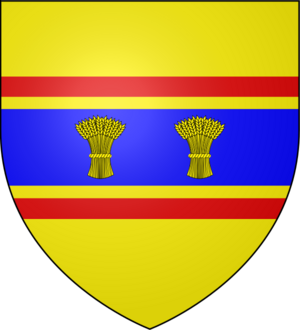John Weaver (Stamford MP) facts for kids
John Weaver (who died in March 1685) was an English politician. He was a member of the House of Commons, which is like a part of the government, at different times between 1645 and 1659. He supported the Parliamentarian side during the Civil War. This was a big conflict in England between those who supported the King and those who supported Parliament.
Contents
Early Life and Beginnings in Politics
John Weaver came from North Luffenham in Rutland, England. In 1631, he became a "freeman" of Stamford, Lincolnshire. This meant he had certain rights and privileges in the town.
From 1643 to 1644, he worked as a legal advisor for the army led by the Earl of Manchester. This was during the English Civil War, and he helped with legal matters for the Parliamentarian forces.
Serving in Parliament
In 1645, John Weaver was chosen to be a Member of Parliament (MP) for Stamford. He joined the Long Parliament, which was a very important meeting of Parliament that lasted for a long time.
He became a well-known leader among a group called the Independents. These were people who had certain religious and political beliefs. Even after some big changes in Parliament, John Weaver continued to be a member. However, he did not want to be one of the judges during the trial of King Charles I.
From 1650 to 1653, he also served as one of the people in charge of governing Ireland. He later chose to step down from this role.
During the Commonwealth Period
During the time known as the English Commonwealth, when England was a republic without a king, John Weaver continued his political career. He was elected as an MP for Stamford again in 1654, 1656, and 1659.
In December 1659, John Weaver played a part in helping to secure the Tower of London for Parliament. This happened after the army had removed the Long Parliament from power. Because of his actions, he became a member of the Council of State from 1659 to 1660. This council was a powerful group that helped govern England.
He tried to be elected to Parliament again in 1660 for the Convention Parliament, but his election was challenged and eventually cancelled.
Later Life and Passing
John Weaver passed away in 1685. He was buried in North Luffenham on March 25, 1685.
 | Janet Taylor Pickett |
 | Synthia Saint James |
 | Howardena Pindell |
 | Faith Ringgold |


